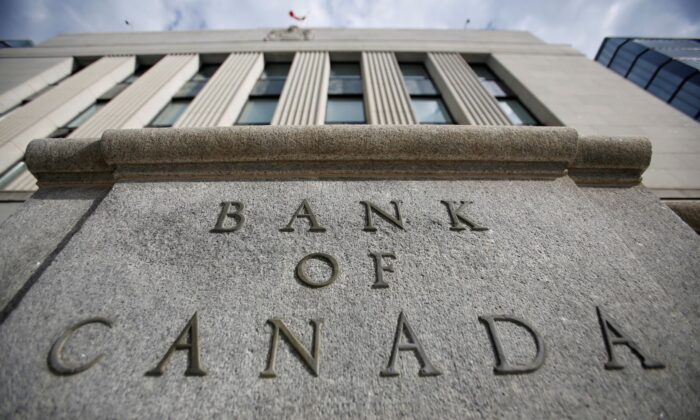Chinese Officials Sanctioned by US for Xinjiang Abuses Have History of Human Rights Crimes
TORONTO鈥擳he Bank of Canada is moving to help keep down long-term bond yields as Ottawa cranks up issuance to pay for COVID-19-related spending, analysts say, with the central bank raising the amount of 30-year bonds it buys in its quantitative easing program.
Long-term bond yields are currently at historically low levels at about 1.10 percent. But that could change as economic recovery gathers momentum and after Ottawa on Wednesday forecast its largest budget shortfall since the Second World War, saying it would “significantly” raise long-term debt issuance.
The Bank of Canada on Monday purchased $600 million of 30-year bonds in a reverse auction. The maximum amount had previously been $400 million, according to strategists.
Increased purchases could go some way to keeping yields down, said Ian Pollick, global head, FICC strategy at CIBC Capital Markets.
The Bank of Canada “recognizes the risk of incoming supply, and is responding in-kind,” Pollick said.
The 30-year yield jumped by more than 0.10 percent鈥攊ts largest increase since mid-March鈥攍ast week when the government released its new deficit forecast.
The Bank of Canada appears “to be changing the composition” of its balance sheet to more closely match Ottawa’s preference for longer-term borrowing, said Andrew Kelvin, chief Canada strategist at TD Securities.
Investors will on Wednesday eye the Bank of Canada’s interest rate announcement as well as the central bank’s Monetary Policy Report, the first since Tiff Macklem took the reins as governor, for changes to the bond-buying program.
“The BoC could very well buy more bonds in response to higher issuance and could at a minimum jawbone this option in Governor Macklem’s press conference,” said Derek Holt, vice President of capital markets economics at Scotiabank in a note.
“Signalling a willingness to buy more before potential further sell-offs allows governments to focus their efforts more upon the umpteen other pressures upon their finances,” Holt said.
By Fergal Smith
Focus News: Bank of Canada Moves to Cap Long-Term Rates as Ottawa Pumps up Borrowing: Analysts
Chinese Regime ‘Lashing Out’ at the World: China Analyst Gordon Chang
